- Home
- David Estes
Ice Country Page 2
Ice Country Read online
Page 2
Look where it’s got us.
I don’t say a thing, because the memories are caught in my throat.
“C’mon, Yo, we were provoked,” Buff says, less nostalgic than me. Really what he means is that Dazz was provoked, and even that’s a lie. There’s a chilluva difference between saying a few nasty words in someone’s general direction and throwing a full-force punch between the eyes, although sometimes the nuances of good behavior and manners are completely lost on me.
“No ’scuses, boys,” Yo says. “Look, the best I can do is that I’ll consider lettin’ you back if you can prove you’ve changed your fightin’ ways.”
“And how are we supposed to do that?” I ask, finally dislodging the memories from my windpipe.
“Get a job. Pay for all the damages. And if I don’t hear about you startin’”—he cocks his head to the side thoughtfully—“or endin’ any fights, I’ll let you come back.”
I groan, but not from the pounding headache that I suddenly feel in the back of my head. From where I’m lying, his requirements seem impossible. Bye, bye girlfriend number two.
“Sure, Yo, whatever you say,” Buff says, but I can hear the dismay in his voice. “We’ll prove it to you.”
“Now you best run home and put some ice on those heads of yours. My oak stools pack a wallop, all right.”
He helps Buff to his feet, and then me. We stand side by side, two fierce warriors, swaying and unsteady on our feet like we might topple over at any moment. Some warriors.
Buff flops a heavy arm around my shoulders, nearly knocking me over. I cling to him just as tightly. We stagger for the door like drunks, open it awkwardly. Before we leave, I look back and ask a final question. “Who hit us from behind?”
Yo shakes his head. “You’ll just go and start a fight if I tell you.”
“Naw, Yo, I just wanna know how we lost. We don’t usually lose.” Never, really.
Yo closes one eye, as if he’s got a bit of dirt in it. “One of those stonecutters,” he says. “The third one, who you both thought was out of the picture.”
We close the door, welcoming the cold.
~~~
“Yah, she was pretty icy,” Buff says, “but there are plenny of fish in the ice streams.” The thing about that is, I’ve gone ice fishing twenny times this winter and I ain’t never caught a freezin’ thing.
“Yah,” I say, not really agreeing. It’s just a bit of bad luck, I tell myself, referring to the three broken and mangled “relationships” I’ve left in my wake. If bad luck’s got two-mile-long legs, a deadly white smile, and more curves than a snowman, then that’s exactly what I got.
“You’ll bounce back. We both will,” Buff says, scraping a boot in the snow. We’re sitting in a snowdrift, having never made it home. Neither of us has much to go home to anyway, and there’s plenny of snow and ice to treat our throbbing heads.
“How?” I say, adding another clump of snow to the snow helmet I’m wearing. “How in the chill are we supposed to get enough silver to pay for everything we broke?”
“There’s always boulders-’n-avalanches,” Buff says, referring to our favorite card game of the gambling variety, another vice we picked up the moment we turned sixteen and were permitted into the Chance Holes.
I feel a zing of energy through my bruised body. It’s a longshot, but…
“How much silver do you have to put on the line?” I ask.
Buff shrugs, removes the snowball he’s holding against his skull, chucks it at a tree, missing badly. “Twenny sickles,” he says.
I frown, scrape the snow away from my own head, doing the math. Combined we have maybe fitty, give or take a sickle. Probably a quarter of what we need to pay Yo back. We’d have to get awfully lucky at b-’n-a to win that kind of silver. I pack the snow into a tight ball, launch it at the same tree Buff aimed for, missing by twice as much.
I look up at the gray-blanketed sky, striped with streaks of red, like bloody claw marks, where the crimson sky manages to peek through the dense cloud cover. When I look down again, I know:
We have no other choice—we’ve gotta try.
Luckily, cards have nothing to do with throwing snowballs.
~~~
The bland gray of the daytime is long past, giving way to a heavy night. I end up stopping at home to get my last bundle of silver coins. When I pry it from behind the bearskin insulation we’ve got pressed against the stacked-tree-trunk walls, it feels lighter than it should. Turns out I’ve got even less than I thought, only twenny sickles. The missing sickles are probably because Mother found my stash and stole what she needed to buy enough ice powder to keep her in a sufficient stupor to forget about me and my older brother, who she says, “Reminds me of your father more than anything.”
Wouldn’t want to do that.
Not that it matters. If she didn’t find some of my silver, she’d have found another way. She always does. That’s one thing I’ve learned about addicts: they’ll get what they need one way or another. Sell a piece of furniture, steal it, trade something. Whatever it takes.
I don’t confront her about it, because it wouldn’t do any good anyway. She barely knows I’m there, sitting blank-eyed and cross-legged in front of the dry, charred fireplace logs, holding her hands out as if to warm them on the invisible flames. “Oooh,” she murmurs softly to herself.
I sigh. If we do win anything tonight, I’ll have to find a better place to hide whatever’s left over after paying Yo back. Like somewhere in another country, fire country perhaps.
Shaking my head, I light a small fire so my mother doesn’t freeze to death.
My brother, Wes, isn’t around, because unlike me, he has a job doing the nightshift in the mines. Ain’t much of a job if you ask me, but without his dirt-blackened face we’d have died of starvation months ago. He’s only two years older than me, but if you asked him, he’d tell you he’s ten years my senior in maturity. Not that I’m arguing.
Given our situation, I should’ve gotten a job a long time ago, when I turned fourteen and school ended. Or at least at age sixteen, when most guys do, after they’ve had their two years of fun. So why am I seventeen and wasting my life away? I wish I knew.
My little sister, Jolie, is staying with a neighbor down the street until my mother can pull it together. The way things are going, she might be there forever. Although I’ve had a pretty shivvy day, not seeing Jolie’s smiling face at home is the worst part. She’s only twelve, and yet, I swear she’s one of the only people who really gets me. Her and Buff, that is.
I leave my mother babbling to herself about how the Cold is growing wings and flying above the clouds, or some rubbish like that. The warmth of the fire I made chases me out the door.
It’s colder than my ex-girlfriend’s personality outside. Even with my slightly-too-small double-layered bearskin coat that I won playing boulders when I was fifteen, and the three thick shirts underneath it, I’m instantly frozen from head to toe. When the wind blows it goes right through me, like I’m naked and made of brittle parchment, and I find myself running just to keep warm. My bruised skull aches with each step.
Before heading to meet Buff, I stop at our neighbor’s place to see Jolie. Although not rich by any stretch of the imagination, Clint and his wife, Looza, are better off than us, which I’m glad for. It means Jolie gets a decent place to stay, three warm meals a day, and a taste for what it’s like to be part of a real family. Selfishly, I want my mother to get cleaned up so my sister can come home, but I know that might not be the best thing for her. Either way, I’m glad she’s close by.
I rap firmly on the door, feeling every thud echo in my head. On the third knock the door opens and Jolie pokes her head out. “Dazz!” she exclaims, breaking into a huge smile that instantly warms my frozen body and soul. Her dark brown hair is in a long, tight braid down her back, almost to her waist. It’s not done exactly like how I would do it, but it’s close enough. When my dad died and my mother lost herself, I had to le
arn how to braid real quick, because Jolie wouldn’t have it any other way.
She rushes out into my arms and the cold. As always, she stands on the tops of my snow-capped boots, her socks getting soaked through. She’s getting so big that my toes get crushed under her weight, but I can’t bring myself to tell her. “You’ll catch the Cold,” I say, walking us both inside where I can feel the tempting heat from a crackling fire.
Face smashed against my chest, she says, “Are you staying for a while tonight?”
I can hear the memory in her voice, a desperate longing for another time, when life was simpler and nights were spent listening to Father’s stories by the fire, or playing sticks and rocks on the big bearskin rug between our beds.
But those days are long spent. “I’m sorry, Joles, there’s something I have to do.”
She steps off my feet and looks up at me all pouty mouthed. She calls it her sad sled dog face. “Fro-Yo’s,” she says, accusation in her voice.
“Uhhhh…” I wish? I can’t tell her the truth—about my fighting and getting banned from the pub. I hate lying to her, but I can’t let her down, not now when she needs a big brother to be proud of. “Nay, nothing like that. Actually, I have a job.” As if. The words just pop into my head, like my heart wished them into existence. But even just saying the words makes me feel a little lighter, like even pretending to be respectable in front of my sister makes me a better person.
Jolie’s eyes widen and her smile returns like a flint spark. “Really?”
I nod uncertainly, on an angle, like I’m not sure whether I’m saying yah or nay. She takes it as a yah. “That’s wonderful, Dazz! Does that mean I can come home soon?” Her hopeful words are like ice daggers shoved between my ribs and I find myself breathless.
She senses my hesitation. “Mom?” she says.
“She’s still pretty bad,” I admit. “But maybe soon,” I say, unable to resist giving her a small measure of happiness, even if it’s as false as the so-called job I have to do tonight.
“What’s the job?” Jolie asks, which is the natural question that I’m totally unprepared for. I’ve got to come up with something, and fast, because she’s looking at me with that cocked-head snowbird expression that usually makes me laugh.
“Master of Chance,” I say, once more going with the first thing that flashes to mind. Technically I won’t be the Master of Chance tonight, but I will be a master of chance of sorts as I participate in a few rounds of boulders-’n-avalanches.
“Congratulations,” she says, giving me another hug. Hopefully her congratulations will still be appropriate tomorrow, when I’ve quadrupled my tiny pouch of silver.
“Thanks, Joles,” I say, giving her a final squeeze. “See you tomorrow?”
“Promise?”
“Yah, Joles, I promise.” This one I’ll keep.
“Will you at least stay for supper, young man?” Clint says from across the room. I didn’t even notice the thin sandy-haired carpenter and his wife, silently preparing dinner and listening to us.
“Evenin’ sir and ma’am. Sorry, I didn’t see you there. I’d love to, but I really must be on my way. First day and all.” More like last night. If I’m not lucky, that is.
“Are you sure, sweetie?” Looza says, chiming in, her wide waist swinging from side to side as she mixes something in a big pot. “There’s plenny of soup.” As if to illustrate, she scoops up a ladleful of hearty stew, letting it slowly drip back into the mixture. My stomach rumbles as the delicious aroma of tender bear meat and winter vegetables fills my nostrils.
“I’ll take it with me, if that’s all right with you,” I say.
She sighs, but nods and begins filling a largish pouch.
“Bye, kid,” I say, kissing Jolie lightly on the forehead.
She steps back up onto my boots and I lean down so she can kiss my cheek. “Bye, Dazz. I’ll miss you.”
“I’ll miss you, too, Joles,” I say, clenching my stomach around the empty pit that’s forming. I take the pouch from Looza and open the door. “Thank—” I start to say, but she muscles me outside, still holding onto her half of the pouch. She pulls the door shut on my sister.
I look at her face, which has formed a question mark out of her eyes, nose and mouth. “Don’t do anything to hurt that little girl,” she says, her eyes as iron grey as the clouds were earlier.
“I won’t, ma’am,” I say, unsure of what she’s getting at.
“Well, then you might want to turn around and go right back home,” she says, firmly but not unkindly.
“But my job,” I say, knowing how weak it sounds.
“Yah. Your job,” she says.
Easing the stew pouch from her grip, I say, “Thank you, ma’am. For the stew and…well, for everything.”
Chapter Three
I take the trail to the lower Brown District, where Buff lives. The further you go down the mountain, the less silver people have and the shivvier their jobs are—if they have work at all. Buff’s father’s a treejacker, earning a sickle a day from backbreaking work that supplies all the timber to the White District and the palace. There’s not much new construction in the Brown District, so little of the wood is sent our way. By the time Buff’s father gets home he’s so bone-weary that it’s all he can do to take dinner in bed and go right to sleep.
Buff’s younger sister, Darce, is a pretty little thing of all of twelve years old, like Joles. After their mother died of the Cold three years ago, she took over the motherly duties of raising all six of Buff’s other little brothers and sisters, as well as feeding Buff and his father. She’s a woman trapped in a girl’s body. The exact opposite of what my mother has become.
I pause on the edge of a large, snow-covered rock before I make the final descent, breathing in the crisp, pine-scented air and gazing down the mountainside. The first part is covered in a winter blanket of white, smooth and unmarked except for the handful of trails where the snowshoes of treejackers and miners have trod a deep path in the high crests of powdery snow. But eventually, beyond the snowy slopes, the mountain turns brown, dotted with heavy boulders and spindly, leafless trees. Further down still, heavy oaks rise tall and majestic, all the way to the edge of ice country, where it seems to collide with fire country. The desert, they call it, bare and lifeless. Even the sky seems to recognize the difference, as the moment the forest gives way to sand and dirt, the clouds stop, as if running up against an invisible barrier that ends their unceasing march across the night sky.
For a moment, as I have many times before, I wonder what’s out there, in fire country, beyond the borders. From what the men at Fro-Yo’s say, there are the Heaters, a peaceful tribe of desert-dwellers. Then there are the Glassies, who I like to call the Pasties, on account of how eerily white their skin is, even whiter than most of ours. No one really knows where they came from, but they’re our friends, too, apparently. According to King Goff’s shouters, who come down from the palace a few times a year to present us with news from the crown, we have trade agreements with both the Heaters and the Pasties. We give them wood, bear meat, and a few other odds and ends, and the Heaters give us what they call tug and ’zard meat, which have become something of a delicacy. I don’t know what either a tug or a ’zard is, but the few times I’ve been lucky enough to eat their meat, I’ve been impressed—it’s much better than bear or rabbit. The Heaters also help guard our borders, although I’m not sure who they’re guarding against. The Pasties, on the other hand, are something of an enigma. No one seems to know what we get from them in exchange for the provisions we provide them with.
I’ve never seen a Heater before, but the men at the pub say they have brown skin and are scared of being cold, whatever that means. That’s why they never come up the mountain. The Pasties, however, appear from time to time in the White District, on their way to the palace. They never stop at any of the local businesses, nor do they speak to anyone but each other. After disappearing through the palace gates, they reappear a few hours lat
er and march right back down the mountain and toward fire country and their Glass City, which I’ve also never seen, other than in the paintings you can buy in Chiller’s Market. But as far as I’m concerned, the drawings are pure fiction—no one could build a glass structure big enough to enclose an entire town.
In fire country, there’s also the Fire, which we call the Cold, an airborne plague that kills many each year, both in fire and ice country. Only, down there, on the flatlands, it’s much worse, or so they say, killing many of them before their thirtieth year. I shudder as a burst of ice runs down my spine. If I lived in fire country, I’d be more than halfway through my life. At least up here where it snows almost every day of the year, the Cold is slowed, allowing us to live into our forties. It certainly puts things into perspective.
It’s forbidden to go to fire country, on account of the disease.
I turn to look up at the monster-like peaks rising above me to the north. Sometimes during the day, when a rare ray of sunlight manages to squeeze through the towers of clouds, one of the peaks looks like the head of a wolf, with caves for eyes and a gaping crevice with fang-like rock formations protruding from its craggy lips. But at night it just looks like a superior being, sturdy and unchanging, even when the whole world around it seems to be constantly moving in a million directions.
Under my breath I whisper a silent prayer to the Heart of the Mountain for luck tonight, and continue down the trail.

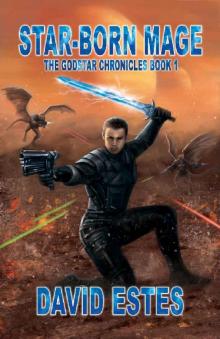 Star-Born Mage
Star-Born Mage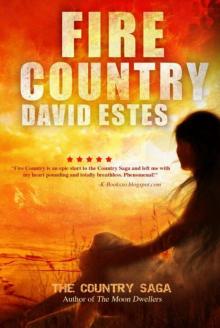 Fire Country
Fire Country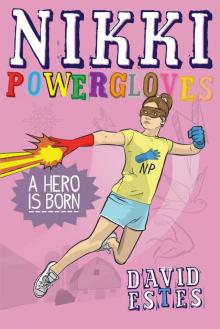 Nikki Powergloves- A Hero is Born
Nikki Powergloves- A Hero is Born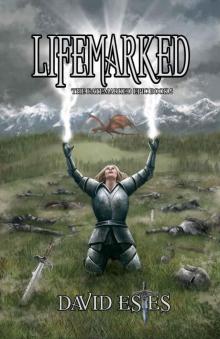 Lifemarked (The Fatemarked Epic Book 5)
Lifemarked (The Fatemarked Epic Book 5) Angel Evolution
Angel Evolution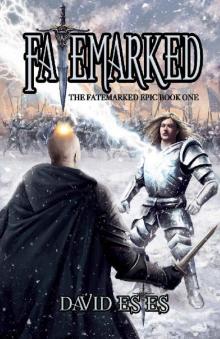 Fatemarked (The Fatemarked Epic Book 1)
Fatemarked (The Fatemarked Epic Book 1)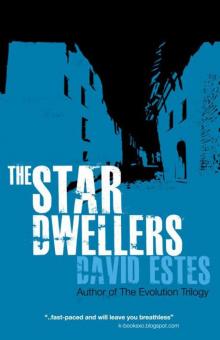 The Star Dwellers
The Star Dwellers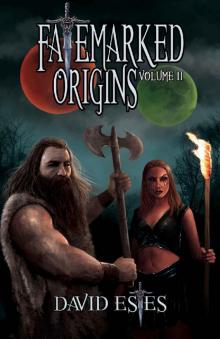 Fatemarked Origins: Volume II (The Fatemarked Epic Book 2)
Fatemarked Origins: Volume II (The Fatemarked Epic Book 2)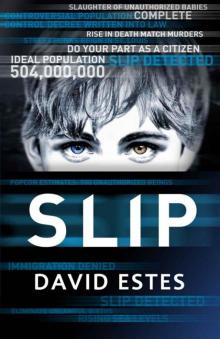 Slip (The Slip Trilogy Book 1)
Slip (The Slip Trilogy Book 1)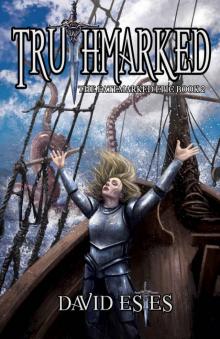 Truthmarked (The Fatemarked Epic Book 2)
Truthmarked (The Fatemarked Epic Book 2)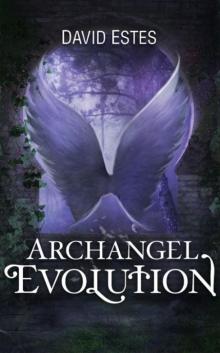 Archangel Evolution
Archangel Evolution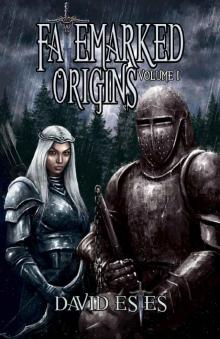 Fatemarked Origins: Volume I (The Fatemarked Epic Book 1)
Fatemarked Origins: Volume I (The Fatemarked Epic Book 1)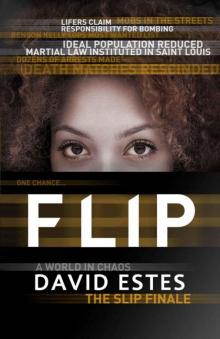 Flip (The Slip Trilogy Book 3)
Flip (The Slip Trilogy Book 3)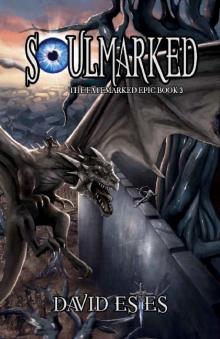 Soulmarked (The Fatemarked Epic Book 3)
Soulmarked (The Fatemarked Epic Book 3)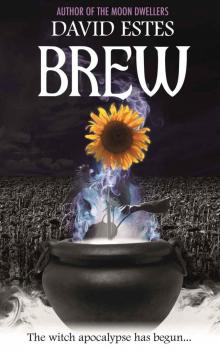 Brew (Salem's Revenge Book 1)
Brew (Salem's Revenge Book 1)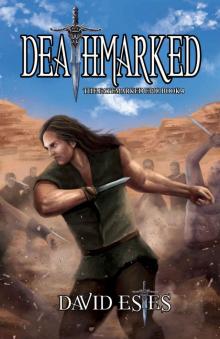 Deathmarked (The Fatemarked Epic Book 4)
Deathmarked (The Fatemarked Epic Book 4)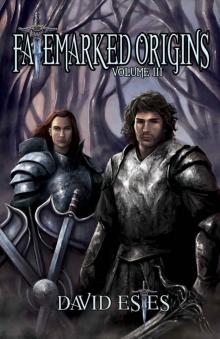 Fatemarked Origins (The Fatemarked Epic Book 4)
Fatemarked Origins (The Fatemarked Epic Book 4)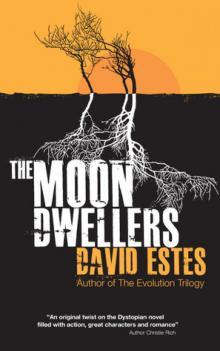 The Moon Dwellers
The Moon Dwellers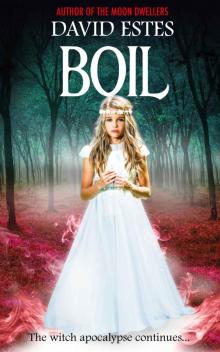 Boil (Salem's Revenge Book 2)
Boil (Salem's Revenge Book 2)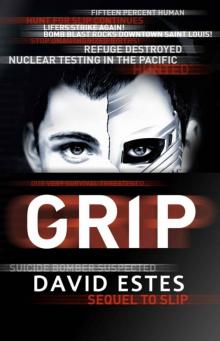 Grip (The Slip Trilogy Book 2)
Grip (The Slip Trilogy Book 2) Salem's Revenge Complete Boxed Set
Salem's Revenge Complete Boxed Set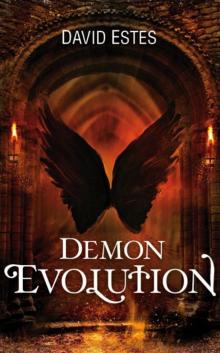 Demon Evolution
Demon Evolution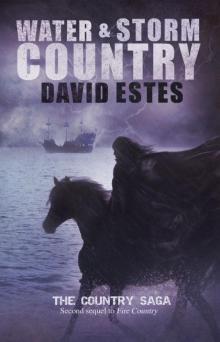 Water & Storm Country
Water & Storm Country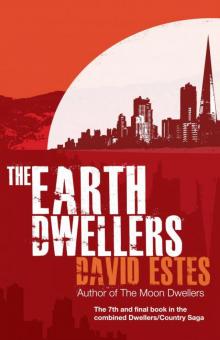 The Earth Dwellers
The Earth Dwellers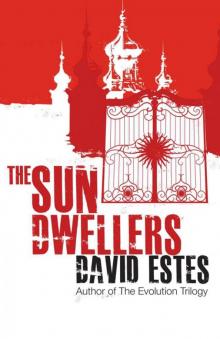 The Sun Dwellers (The Dwellers Saga)
The Sun Dwellers (The Dwellers Saga)